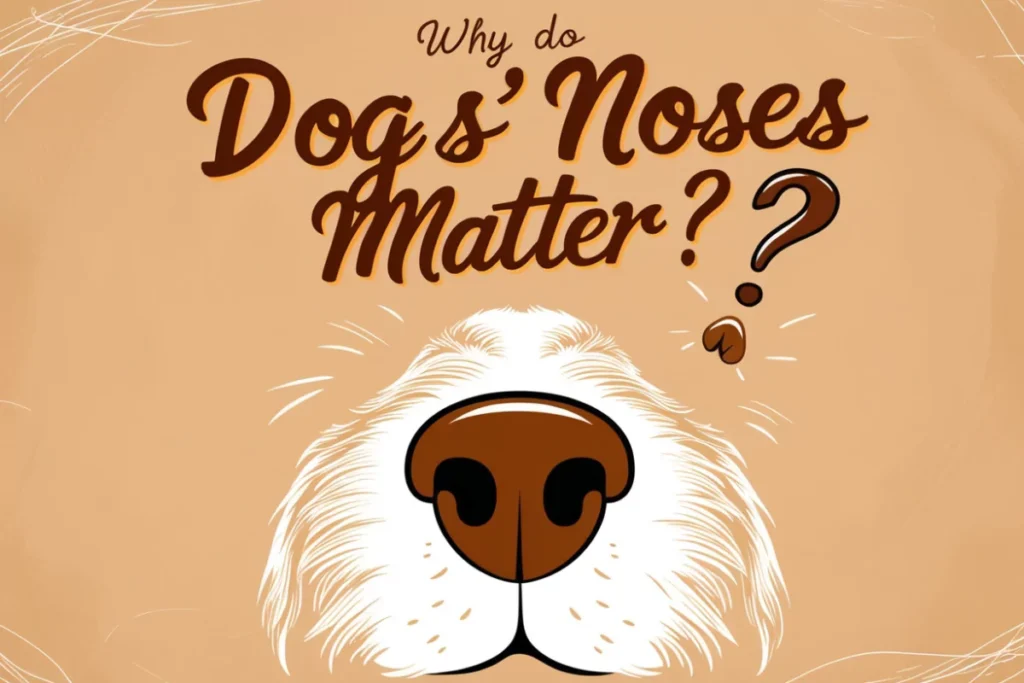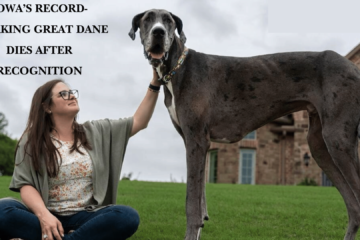Hello people! Regarding dogs – man’s best friend, one question remains on almost all dog owners’ heads: When will we know if they will live? Dogs have varying life expectancies for numerous reasons, including breed, size, health, and way of life. Yet, most pet parents are often amazed to find out that the most reliable predictor of a dog’s longevity has been present from when they got the puppy: their nose!
In this blog, we look at how a dog’s nose Health dog can tell us How long a dog might live And other conditions that could affect the dog’s life.
Let’s discuss it!
Table of Contents
Understanding Dog Lifespan

We’ll then introduce some of the basics of canine lifespan. The average dog will live from around ten to 15 years, but size and breed make all the difference to the top end. So, generally speaking, Chihuahuas and dachshunds live a long time compared to 15 years, and bigger breeds like Great Danes don’t live more than 7 to 10 years.
Why is the breed long-lived? Two more measures should be taken into account: the surroundings, the eating behaviors, the medical attention given to the dog as well as the strains.
A well-proportioned intake of nutrients, physical workouts, and routine check-ups at the vet are vital to maintaining the health of your puppy for a very long time. There is a lot to be said about a certain condition of a dog’s nose and how it speaks of its health state; however, a lot is given away about the health state of the dog’s interior.
Why Do Dogs’ Noses Matter?

Ewan The Dog’s nose may be cute, but it’s far more than that: That’s another important feature so the whole body can work. Dogs have a super sense of smell. However, that nose can be a good health symptom in itself.
Here’s how:
Nose Temperature: Aside from that, it also tells you if a dog is healthy. A normal dog has a wet, cold nose, but a dog with a warm or dry nose means your dog is likely either dehydrated or sick. However, there are more definitive diagnostic tools for this use.
Nasal Discharge: Normal is normal clear nasal discharge, but abnormal (colorful, foul-smelling discharge) may indicate an infection or allergy.
Nasal Crustiness: If yours is crusty or cracked, it might be because it’s dehydrated or a skin condition. It’s then applied to your dog to see if their nose is abnormal and monitors their noses.
Nose Color: A dog’s nose changing can cause some health conditions. Take, for example, from pink to brown, or the other way around, which seems to mean many autoimmune health problems, but the most important thing to watch out for is thyroid problems.
Nasal Symmetry: Healthy means a symmetrical nose. She’d have all of them tapped by the veterinarian if your dog has something that looks and feels like a bunch of lumps and bumps, that looks and feels asymmetrical.
If I were going to have a body, I would have a dog’s nose, a dog’s body, and a dog to look at. A window into my health. An intact, healthy nose means the dog lives healthy and happy for longer.
Factors Influencing Lifespan
Your furry friends may sometimes be able to help you fit how many memories they’ll be leaving you with, but that’s not everything that goes into how long they’ll be around.
Breed: It’s a very big determiner of lifespan, and a warning is mentioned. For example, small breed dogs will age slower than large breeds with different diseases and longer lives. While the smaller Yorkshire Terrier breeds live for 15 years or longer, the Saint Bernard breeds, who are larger, will not live as long as their health problems do, and the health problems’ living shortens the life span.
Size: The bigger the dog, the bigger the dog it is, and the faster it will grow old; it’s a broader sense. It’s that reason that causes the larger breeds to be more metabolically and physically stressful. Lifetime potential on this basis should take size into account.
Health Care: Therefore, this must be checked in the veterinary clinic. With a dog that is up to date on vaccinations, teeth cleaning, and parasite preventative treatments, for example, they can live much longer. Early health issues are picked up, and the therapy outcome is the most positive.
Diet and Nutrition: A good balance of a dog must be maintained. Now it’s so many dogs, so fat; they’re all going to have a slew of future diseases and shortened lives.
Exercise: Taking part in physical activity either within or outside these hours is underlined as an essential component of a healthful, balanced way of life. In reality, walking one’s dog is beneficial not only for the dog but also for you! Your dog will be more pleasant and well-mannered. For instance, we let them engage in various games and activities that we refer to as activities to get their brains and bodies worked out for longer.
Environment: Your dog’s life span is often dictated more by his environment than you might imagine. If your dog lives a safe, stress-free life, they can live a long time as long as they are healthy and disease-free. Do those things that will keep you and the diatoms from being toxic, and be in a loving home. Drink lots of plain water.
Genetics: Like people, there’s something genetic about how long a dog lives. So, things like these give you some clues about your dog’s longevity, and some are more likely to have some of your dog’s health problems than others.
Spaying/Neutering: It may benefit your dog’s health and life. Studies bear that spayed and neutered dogs are less likely to suffer health problems from the reproductive organs.
How to Maximize Your Dog’s Lifespan
With an understanding of how various factors influence your dog’s lifespan, you can take proactive steps to help maximize the time you spend together:
Regular Vet Visits: Dogs need to be watched over just as humans require it, regularly, just like humans need to be under a vet’s watchful eye. They catch early, and you’ll be able to fix them better.
Exercise and Play: What teeth cleaning pills can get you is keeping active with your dog, regular exercise, and playtime. Both are walking, running, playing fetch, and keeping in great shape, both physically and mentally stimulated.
Mental Stimulation: Some toys or activities that require your dog to work their brain. Old ones will like puzzle toys and training exercises to keep their mind sharp.
Maintain a Healthy Weight: If you fail to turn obesity away by first monitoring your dog’s weight and altering the diet.
Grooming and Hygiene: Your dog’s skin and coat will always be tip-top with regular grooming. It will also help you prevent many of the usual health problems.
Create a Safe Environment: Your home should be dog-safe. Then, removing them from both hazardous ranges makes some space to chill.
The following video explains about Maximize Your Dog’s Lifespan:
Conclusion
The sad truth is, there’s no such thing as real science when it comes to when your dog is going to die, and that’s exactly the point; so when talking about how long our dog lives, we need to know what factors go into it so that we know what decisions to make to give our dog the maximum quality of life possible.
This is not just a symptom but a part of the puzzle of how healthy your dog is. From the breed’s size to healthcare, diet, exercise, environment, and genetics, should you miss nothing of the time spent with your furry one, you should consider.
Any time spent with your dog, no matter how long it takes, it doesn’t matter how many seconds it takes, whether it takes you a minute or a minute—or a day, that’s not time lost because that’s not wasted time.
In return, it will make your dog happier and healthier, and you’ll get as many years out of your happy pack as both of you deserve. Of course, your dog’s nose might not be the only thing behind that nose that is popping those treats out. Your dog was a sweet little companion and friend who couldn’t be replaced.
FAQ
1. How old do dogs usually live?
A dog might live anywhere from 10 to 15 years — that’s the high end, but when it comes to breed and size.
2. What does his nose say about the health of a dog?
The nose of a healthy dog should be cool and moist. That may even be the color, temperature, or discharge out of their nose enough to know something is wrong that will shorten their life.
3. We don’t know how long to expect our dog to live.
Breed, size, genetics, diet, exercise, healthcare, and the dog’s environment are all.
4. Do smaller dogs live longer than bigger dogs?
Generally, yes. What’re you waiting for? It’s the smaller states who have a longer lifespan than most. As smaller breeds have different health issues than large breeds, the life span of small breeds is longer.
5. What would you do to prepare my dog to most fully live its life?
The result of a long-lived dog is regular veterinary checkups, a well-balanced diet, regular exercise, and mental and physical stimulation in a safe, loving environment.




